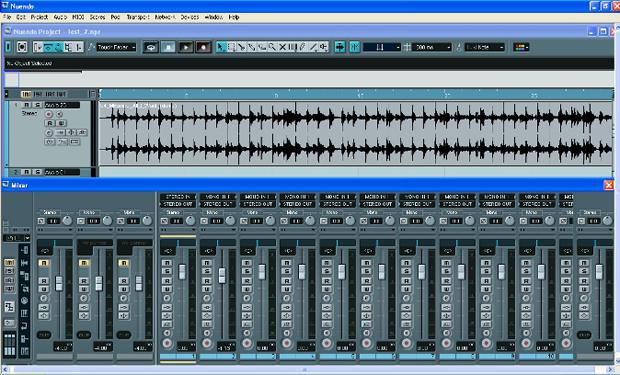Songcraft: Becoming Your Own Producer, Part 6

With a majority of today’s songwriters having powerful recording tools at their disposal, just a laptop’s click away, and the line between home and studio recordings blurring daily, writers/artists are now finding themselves, more and more, in the role of de facto producer when looking to capture their latest creations.
With that thought in mind, Songcraft’s “Becoming Your Own Producer” series will look to dissect, simplify and offer insight into the (sometimes daunting) process and art of DIY music production.
(In case you missed the previous installments of this series, check out parts one through five under RELATED CONTENT to the left.)
Mastering
Now, with final mix master in hand, we come to the last phase of our production process, mastering.
If you’re happy with the way your newly mixed track or tracks sound and you’re not planning to release the music commercially, it can be said that you don’t really need to have your tracks mastered. Consider the project complete.
If, however, you’re planning to send the music out into the world (iTunes, Spotify, CDs, etc), you’ll want to offer your material the benefits and the competitive edge that mastering can provide. As mastering is very much a specialized process, this is where veering off the DIY path is definitely a smart move. Do some research, find a qualified, professional mastering engineer in your city who has done work you like and put your music in their capable and experienced hands.
Get The Pick Newsletter
All the latest guitar news, interviews, lessons, reviews, deals and more, direct to your inbox!
Here are some thoughts on what pro mastering brings to the sonic party:
• The basics. A professional mastering engineer’s main function is to sonically enhance/improve and (when needed) repair your tracks through the use of precision monitoring, EQ, compression and noise removal techniques. A good mastering engineer will always strive to do as little as possible to your music, intervening only when necessary.
• While working to enhance your tracks, the mastering engineer will also look to improve the sonic compatibility/versatility of your songs, so that your music will sound its best whether listened to via a high-end stereo system or a pair of earbuds.
• Another function of the mastering process is to increase the average volume level of your tracks while still retaining your music’s inherent dynamics. A good mastering engineer will achieve all through the judicious use of compression/limiting. When done correctly, dynamics will remain intact and your tracks will be comparable in volume to most commercially released songs. When done incorrectly, your tracks can sound overly loud, small and crunchy with little to no dynamics present (i.e. the gentle parts of your songs will sound as if they’re at the same volume level as the energetic sections). Be sure to discuss loudness vs. dynamics balance with your mastering engineer at the top of your session.
• When mastering an album of material (as opposed to a single track), it’s the mastering engineer’s job to compile and sequence the songs. With guidance from either the artist or the producer, the engineer will put the album tracks in running order, create the spacing between songs and make sure the volume level from track to track stays relatively consistent.
• In the final stage of the mastering process, the engineer will create a production master (usually a Red Book CD-R) that will contain your newly polished, “mastered” tracks. This master is what will later be used as the source for the creation of end-user products (CDs, MP3 files, etc).
So that does it for Songcraft’s “Becoming Your Own Producer" series. Hope you enjoyed it and found its breakdown of the DIY production process helpful. If you have any questions about mastering or any of the production phases previously discussed throughout the series, please leave a comment below.
Mark Bacino is a singer/songwriter based in New York City. When not crafting his own melodic brand of retro-pop, Mark can be found producing fellow artists or composing for television/advertising via his Queens English Recording Co. Mark also is the founder/curator of intro.verse.chorus, a website dedicated to exploring the art of songwriting. Visit Mark on Facebook or follow him on Twitter.
“Around Vulgar, he would get frustrated with me because I couldn’t keep up with what he was doing, guitar-wise – Dime was so far beyond me musically”: Pantera producer Terry Date on how he captured Dimebag Darrell’s lightning in a bottle in the studio
“He ran home and came back with a grocery sack full of old, rusty pedals he had lying around his mom’s house”: Terry Date recalls Dimebag Darrell’s unconventional approach to tone in the studio









